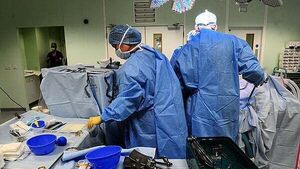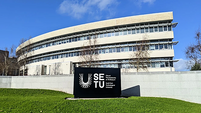Women suffer with more extreme distress during cancer diagnosis than men, data shows

Sarah Slater
Women suffer with more extreme distress during cancer diagnosis and treatment than men, the first new Irish data in 10 years shows.
Up to 46 per cent of women deal with extreme distress at diagnosis and 21 per cent during treatment, compared to 18 per cent of men at diagnosis and 5% during treatment, while patients were likely to perceive their families as more distressed than themselves.
Patients reported work, fatigue, and fear for the future as areas of life most severely affected by cancer, while only 3 per cent of patients reported extreme difficulties with relationships.
The cancer burden is rising worldwide, with 20 million new diagnoses annually. Psychological needs of cancer patients are increasingly recognised, and psycho-oncology teams are developing.
The study carried out jointly by St James’s Hospital, Departments of Psychiatry at St James’s Hospital and Trinity College and Tallaght University Hospital of which 142 patients took part shows that almost two thirds or 64 per cent were female.
Almost 91 per cent of patients had no history of psychiatric or psychological difficulties and all adult age groups were analysed.
This is the first significant study of gender based distress among Irish cancer patients in the last decade and includes all cancer types.
The study titled, Cancer patient distress – roles of gender, family and psychological care, published in this month’s Irish Medical Journal shows that amongst women, the most common cancers were breast at almost 52 per cent, gynaecological 13 per cent and colorectal 8% per cent while lymphoma/leukaemia at 22 per cent, colorectal 18 per cent, and prostate/renal/bladder cancers 18 per cent were most common among men.
At the time of the study, 54 per cent of patients had received their cancer diagnosis within the previous year, almost one third or 31 per cent were experiencing a recurrence.
Chemotherapy was the most common treatment at 85 per cent, followed by surgery at 40 per cent, steroid treatment was received by 37 per cent of patients, radiotherapy by 28 per cent, hormonal therapy by 9 per cent, bone marrow transplant 6 per cent and immunotherapy by 1% per cent.
More than two thirds of patients rated their cancer diagnosis as very distressing at 33 per cent or extremely distressing at 36 per cent. Women experienced more distress than males, with 46 per cent of women reporting extreme distress at their cancer diagnosis, compared to 18 per cent of men.
Distress at diagnosis for patients was not related to cancer type or history of psychiatric or psychological difficulty. Patients were more likely to perceive their families as extremely distressed compared to themselves.
Almost half of patients rated treatment as very or extremely distressing, but patients were, overall, less likely to report extreme distress at time of treatment compared to time of diagnosis. Women experienced more distress than males during cancer treatment, with 21 per cent reporting cancer treatment as extremely distressing compared to 5 per cent of men.
Almost half of patients reported that cancer diagnosis and treatment impacted a great deal on daily life. A majority reported that cancer diagnosis and treatment had a moderate or great deal of impact on their quality of life.
Less than a quarter of patients or 23 per cent felt that they were coping very well with cancer treatment and associated side effects.
The areas in life that were most extremely affected by cancer and its treatment were work at 28 per cent, fatigue 19 cent, and fear for the future 17 per cent. The areas least extremely affected were relationships, parenting and fertility.
The study co-authors point out that the high rates of extreme distress for cancer patients and their families in the study, “particularly among women,” highlights the need for “enhanced provision of psychological support for patients during both cancer diagnosis and treatment”.
They added: “In Ireland, services have been developing nationally under the National Cancer Strategy 2017-2026 and this research emphasises the ongoing need for this service for the Irish population.
“High rates of extreme distress for cancer patients, particularly women, and their families highlights the need for enhanced, gender-aware, family-oriented psychological supports during cancer diagnosis and treatment”.





